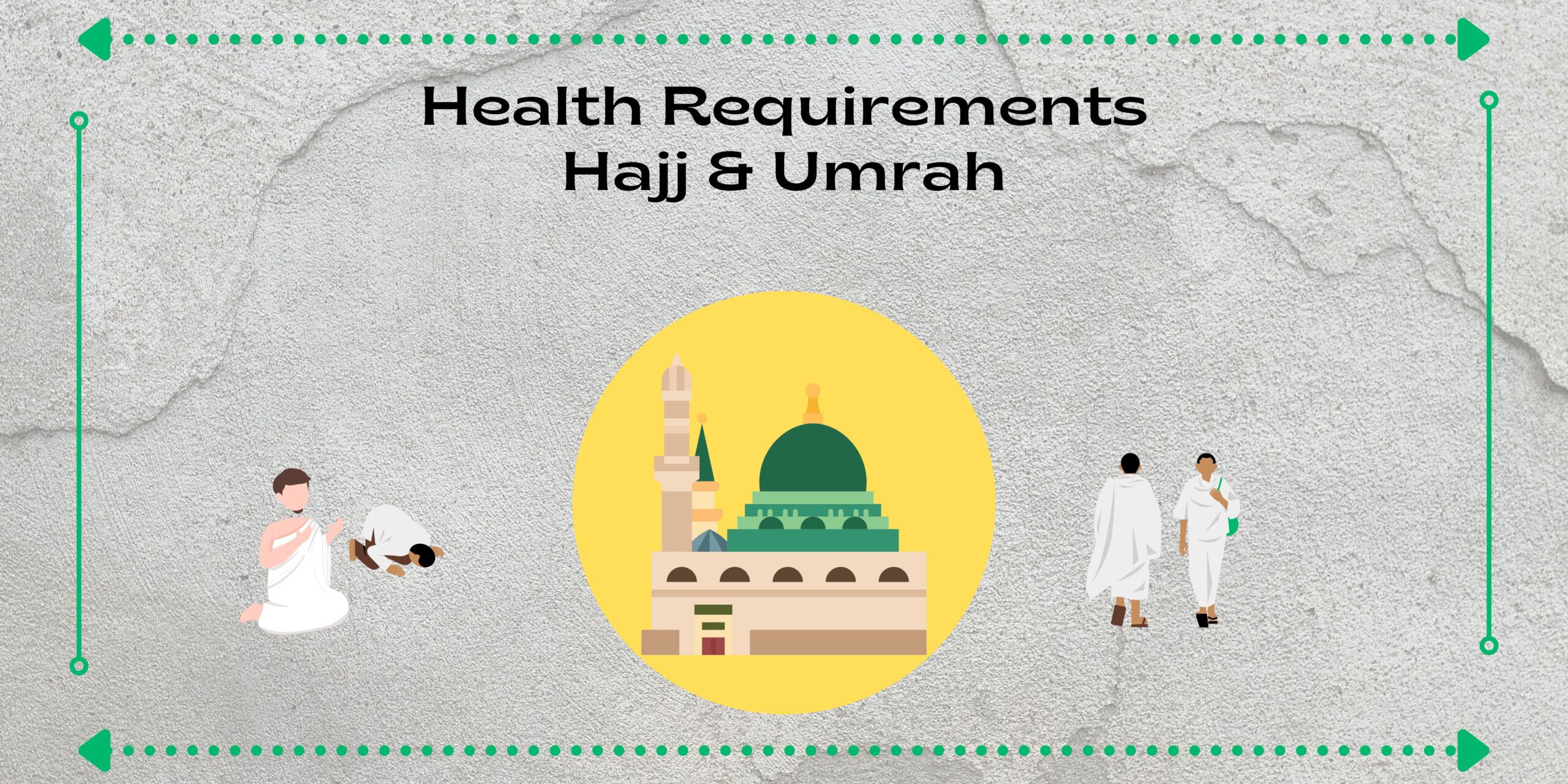Hajj and Umrah pilgrims must meet some health requirements after COVID-19. For Hajj season 1434 H, the Ministry of Health has set up several rules that visitors must follow to get an Entry Visa for Hajj and Umrah in the Kingdom of Saudi Arabia. These rules about health include:
1. Yellow Fever
A) All tourists traveling from countries or areas at risk of yellow fever must have a valid vaccination certificate confirming they were vaccinated for at least 10 days and no more than 10 years before arrival. Without a certificate, the subject will remain under strict observation for 6 days after immunization or the last day of potential infection exposure, whichever is earlier. Health offices at entry points will notify the regional or governorate Director General of Health Affairs about the visitor’s temporary residency.
B) Aircraft, ships, and other transports arriving from yellow fever-affected nations must produce a disinfection certificate (WHO). All inbound ships must have a valid Ship Sanitation Certificate under International Health Regulations 2005. For free pratique, ships arriving from yellow fever-risk regions may be inspected for yellow fever vectors or disinfected (including permission to enter a port, to embark or disembark and to discharge or load cargo or stores).
2. Meningococcal Meningitis
A) Visitors from All Countries: Visitors coming to Saudi Arabia for Umrah, pilgrimage (Hajj), or seasonal work must present a meningitis vaccination certificate issued no more than 3 years and no less than 10 days before arrival. Adults and children over 2 should receive 1 dose of the quadrivalent polysaccharide (ACYW135) vaccine in the visitor’s home country.
B) Visitors from African Countries: In addition to the above-stated requirements, Umrah visitors from the African meningitis belt (Benin, Burkina Faso, Cameroon, Central African Republic, Chad, Cote d’Ivoire, Eritrea, Ethiopia, Gambia, Guinea, Guinea-Bissau, Mali, Niger, Nigeria, Senegal, and Sudan) will receive ciprofloxacin tablets (500 mg) chemoprophylaxis at the port of entry to lower the rate of carriers.
C) Interior Pilgrims and the Hajj Workers: The quadrivalent (ACYW135) vaccination is necessary for:
- All people who haven’t had a vaccination in the last three years who are citizens or inhabitants of Madinah and Makkah;
- All residents and citizens doing the Hajj;
- All Hajj pilgrims who have not had a vaccination in the previous three years;
- Anybody in Saudi Arabia interacts with pilgrims directly or works at entry gates.
3. Poliomyelitis
All Umrah travelers from polio-endemic and re-established transmission countries, including Afghanistan, Chad, Nigeria, and Pakistan, should receive 1 oral polio vaccine (OPV). Proof of polio vaccination at least 6 weeks before departure is necessary for tourists from polio-endemic and re-established transmission nations to apply for a Saudi Arabia visa. Travelers will also get 1 dose of OPV at Saudi border stations upon arrival. India, a newly endemic country with a high danger of poliovirus re-importation, has similar needs.
All travelers under 15 going to Saudi Arabia from countries reporting polio due to importation or vaccine-derived poliovirus in the preceding 12 months should be vaccinated with OPV. 6 weeks before visa application, OPV or IPV vaccination proof is necessary. All visitors under 15 will get 1 dose of OPV at the border, regardless of vaccination history.
4. Seasonal Influenza
The Saudi Ministry of Health recommends that overseas Umrah pilgrims get vaccinated against seasonal influenza before arriving in Saudi Arabia, especially pregnant women, children under 5 years old, the elderly, and those with HIV/AIDS, asthma, and chronic heart or lung problems. In Saudi Arabia, the seasonal flu vaccine is advised for all internal pilgrims, especially those at risk, and all Hajj healthcare personnel.

